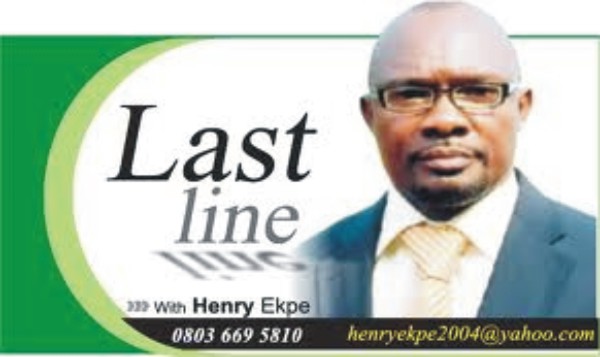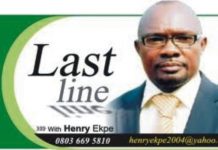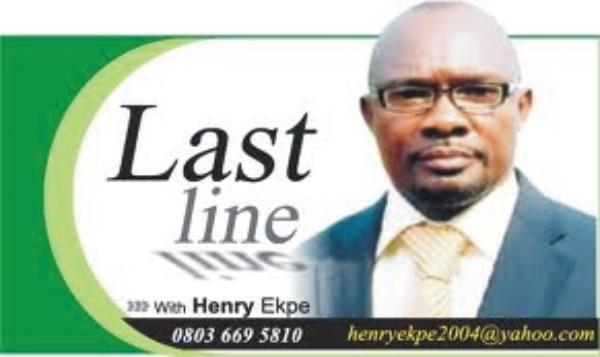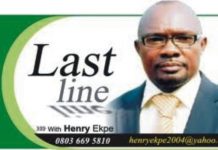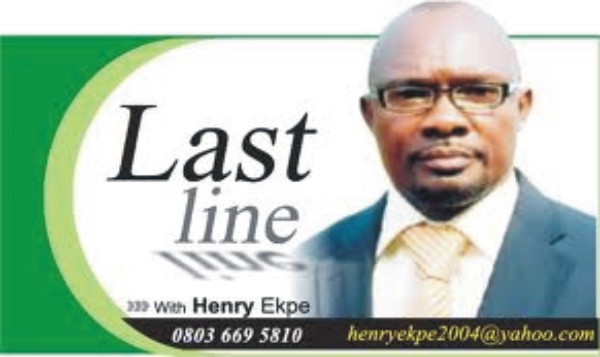
Politicians know how to coin words. Since the inception of the current democratic dispensation, there have been various political lexicons designed to qualify the activities of political parties and their leaders.
It was politicians who thought us the difference between “miss-application” of funds from “miss-appropriation” of funds. It was also from them we heard of “capturing of votes”, “landslide”, “deliver” etc.
However, recently, those who despise the Peoples Democratic Party, PDP equated the party’s slogan with “share the money”. This belief was that PDP rather than make use of available funds for the development of the state, They share it among its party members. This derogatory assumption was in the air in Imo State prior to the 2011 governorship election, which many said disillusioned the electorate, and led some of them to want an alternative political party at the helm of affairs in Imo State Government House.
Many Imolites believed then, that instead of putting money in their pockets, they would prefer to go with empty stomachs, while there would be infrastructural improvement in the state.
Therefore, there is no gain saying the fact that during the PDP leadership in Imo between 1999-2011, there was enough money in circulation, as it was clearly written on the faces of the masses, who exhibited happiness in their day to day activities, because money is the lubricant of life, while God is the maker.
Between 1999-2007 that Dr Achike Udenwa managed the affairs of Imo State, he erected various structures including massive road constructions, which are still there for history to take note, despite all efforts by the incumbent administration of Owelle Rochas Okorocha to erase such legacies.
Within this period, Imo Economy was bubbling. Buildings were springing up every where. Infact, a new set of young politicians “made it” so much that most of them today have “grown” up to the national level, following the foundation they got from Udenwa.
Then, you can not die of hunger. Infact, if things got out of hand, there were people you could run to for financial assistance. Most young men then were employed, as there were various projects going on around Imo State where people with lower certificates could engage themselves.
And again, the Imo Local Governments were functional. There were Council Chairmen, Councilors, Supervisory Councilors and other Aides of these elected officers, who made the LGAs their abodes and sources of income.
With this situation, rural areas were alive with activities, as most of the politicians settled in their villages, and cared less of what was happening at the Douglas House, Owerri.
These people employed by the 27 LGAs of the state were happy with residing in their immediate environments to develop their villages, only to visit Owerri, the state capital when it was absolutely necessary.
If you came to the State Capital, Owerri, life was lively for every sector of the economy. Many Civil Servants had it so good because they could afford to take good care of their families. This was because, their basic salaries and other allowances were intact, even if salaries were irregular. Since Imo is predominantly a Civil Servant Town, the financial status of Civil Servants always determine their purchasing power, which will either negatively or positively reflect the markets and shops in Owerri.
Because of Governor Udenwa’s magnanimous character, many people, who were not even directly involved in his administration, benefited one way or the order.
Even Journalists in the state had it so good, as Udenwa supported them whenever they were in need, including in their time of mourning or time of celebration.
The Amaifeke born politician was too good that he even made sure that those who worked under his administration did not remain in the realm of poverty all their lives, except the foolish ones among them who frittered away their opportunities thinking that rain falls every day.
As a trained accountant, what Udenwa was doing was to re-distribute wealth, which is what administration is all about. Development of a people depends on how equitably resources are scattered among the inhabitants, which is the engine room of every society. It follows to say that there is no Imo State without its citizens. I also add that Imo State was created for its citizens, and therefore Imo citizens have been here before Imo State. The citizens were not created for Imo State.
Therefore, for using Imo State funds for its people, was it what people called “share the money?” If a Leader does not come to share wealth, did he/she come to share poverty?
Despite sharing the money, did Udenwa not construct the State Secretariat and various roads across the State? We should also judge administrations by the circumstances of that era. How much was coming into Imo State in 1999-2007as Federal Allocation? Was it not better to “give to” the citizens than to “chop” the money alone?
Then came Dr Ikedi Ohakim in 2007. The regime of “share the money” continued. Ohakim conducted elections in the LGAs through which thousands of Imo citizens were empowered. The regime, like that of Udenwa, every month released the Council allocations to the elected Chairmen, through which money trickled down to the grass roots.
You may accuse that administration of every thing in the world, but you can not deny the fact that money was in circulation in Imo State as people could afford at least to eat twice daily. A lot of people benefited from that regime, even as there must be Judas among every Twelve.
Politicians in Imo State then could meet up their little demands, through some “little” contracts that went round. Our indigenous contractors benefited. Civil Servants had their Salaries and Allowances full and intact. Since money is a chain-reaction, it continued changing hands in abundance, that the same Imo people of today wondered why there was too much money in circulation then in the state.
They felt that since the poorest of the poor could afford “Child dedication” it means that politicians were swimming in money. But it was not true. It was only that the Governor wanted the people to live a standard life. If the duty of Chief Executive is not to “share money” is he in office to “share deaths?” Was it a crime for a regime to make cash available for its people to meet their responsibilities?
It was like this during Ohakim’s era because those Statutory “honours” to the people were met. For instance, if there were contracts to construct class rooms under SUBEB, dig bore holes under MDG, was it a crime to give such contracts the party faithfuls, provided they are from Imo State and will carry out the jobs as directed? Would it have been better to give it to a contractor from Northern part of the country who will carry the money to Kaduna or Adamawa State, leaving Imo dry?
Remember, when these indigenous party faithfuls execute such contracts and are paid, they will pay their children’s school fees here, pay house rents here, purchase their food stuffs here, and even visit any of the out-lets here to unwind. In the end, the money made here, is also circulating and remaining in Imo State. So, is this what is called “share the money?” Despite sharing the money, can any body go through the 27 LGAs in Imo State today and deny the fact that Ohakim left legacies in office?
It is very surprising that the populace, who said it wanted “sharing of poverty” instead of part-taking in the sharing of their collective common wealth, are now raising hell. What am I saying?
The people of Imo State are now groaning that they have not seen a regime such as the one they have found themselves presently. It is no exaggeration. Enter Okada, Keke, visit Churches or State Secretariat, sample opinion molders and hear their cries. They say things are getting worse, especially since 2011.
But one glaring and good thing is that the Owelle Rochas Okoroch regime is very much aware of this wild cry from the populace.
That is the reason Governor Okorocha makes it clear at any given fora that his administration is still “rescuing” the masses and yet to enter the “mission”, when money would start circulating in the state. He repeated it a few days ago while inaugurating Imo Elders Council.
He said money coming into Imo State is being used to develop the state, through massive projects. But is that the case? How could massive projects be going on yet the people are crying of hunger? Should it not be through the said projects that the masses would have benefited through employments at sites and through the contractors handling such massive projects? That is a process to “Share the money”. But the people are not seeing any thing in terms of good living. Assuming there are projects going, is it the dead that would make use of them?
Unfortunately, it is getting too late for this “mission” to be actualized as time is no more our brother. By next year we should be talking about elections. So when will Okorocha “release his hand” for this manner to fall. Could he be willing for the people to “enjoy” when he keeps repeating it every day that he is not willing to “share” Imo State money.
If the Governor does not “Share” Imo State fund, which is through wealth creation via some programmes and projects,

